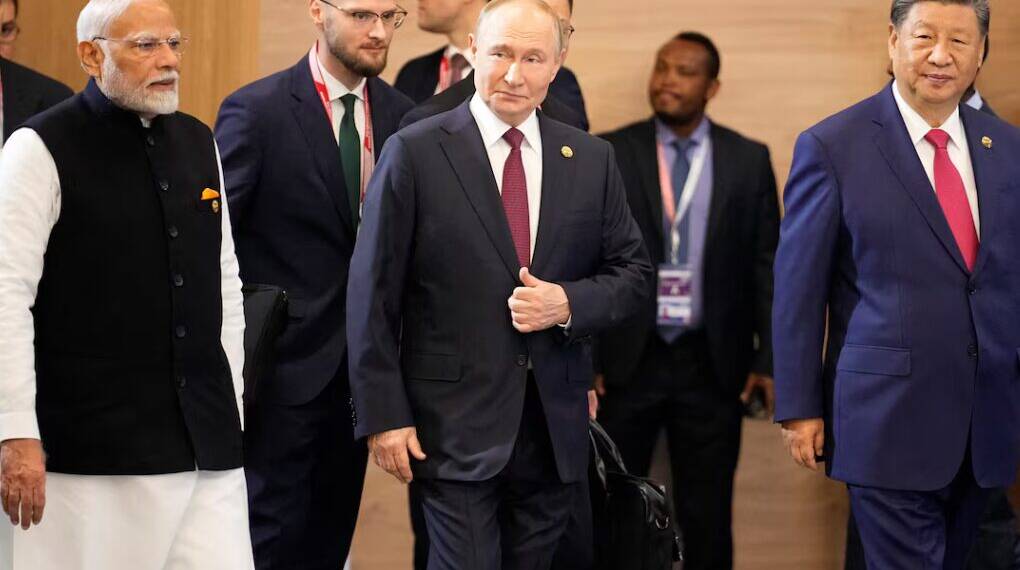Indian Prime Minister Narendra Modi will visit Tianjin, China, from August 31 to September 1 to attend the annual Shanghai Cooperation Organization (SCO) Summit—his first visit to China since the deadly Galwan Valley clash of 2020 that left 20 Indian soldiers dead.
The trip comes at a complex time for regional and global geopolitics and marks a significant diplomatic recalibration between India and China.
This is also PM Modi’s first visit to Beijing since 2019, and it follows signs of a gradual thaw in strained bilateral relations.
Why This Visit Matters?
The visit is significant not only because of its timing—five years after the worst India-China border clash in four decades—but also because it reflects a nuanced shift in India’s foreign policy calculus amid global uncertainty and intensifying U.S.-China competition.
In recent months, India and China have made efforts to ease tensions, including partial disengagement along the Line of Actual Control (LAC), the resumption of the Kailash-Manasarovar pilgrimage, and India restarting tourist visas for Chinese nationals.
Despite these steps, many issues remain unresolved. China has recently restricted the export of rare earth minerals and specialty fertilizers to India, while continuing to supply them to other countries, hinting at ongoing economic coercion.
Backdrop: Trump’s Criticism of BRICS and Dollar Hegemony
The visit also comes at a time when U.S. President Donald Trump has launched verbal attacks on the BRICS nations (Brazil, Russia, India, China, South Africa) for purchasing Russian oil and allegedly challenging the dominance of the U.S. dollar. Trump’s comments have pushed India to reassess its balancing act between Western partners and continental groupings like SCO and BRICS.
According to analysts, India’s engagement with SCO—despite its flaws—offers strategic leverage by maintaining a seat at the table and countering China-Russia dominance in regional forums.
India’s SCO Dilemma: Terrorism and Strategic Mistrust
India’s relationship with the SCO remains complicated. The group, founded to address transnational security issues, has been criticized for failing to condemn terrorism targeting India. In July, Indian Defence Minister Rajnath Singh refused to sign a joint SCO statement after Pakistan and China attempted to exclude any mention of the Pahalgam terror attack, which killed 26 people in Jammu and Kashmir.
China, widely viewed as Pakistan’s key strategic ally, has repeatedly blocked Indian efforts to designate Pakistani-based terrorists at the UN and has continued providing Pakistan with real-time intelligence and strategic support.
India also remains frustrated by the SCO’s Regional Anti-Terrorist Structure (RATS), which has not addressed India’s specific security concerns.
Recent Diplomatic Engagements with China
Leading up to Modi’s visit, External Affairs Minister S. Jaishankar held a series of high-level meetings with Chinese officials, including President Xi Jinping and Foreign Minister Wang Yi. Jaishankar stated on X (formerly Twitter) that he “apprised President Xi of the recent development of our bilateral ties” and spoke of a need for a “far-seeing approach” in improving India-China relations.
He acknowledged that “good progress” had been made over the past nine months and emphasized that both sides should now focus on de-escalation along the LAC.
Strategic Balancing: India’s Role in SCO and Beyond
Experts suggest that while India remains critical of China’s actions, it cannot afford to cede ground in forums like the SCO.
India’s presence is essential to balance China and Russia’s growing dominance. If SCO becomes an anti-West platform, India can act as a moderating force,” said Anushka Saxena, a China researcher at the Taksha Shila Institution.
She noted that India’s role as a “disruptor” within the SCO is key to preserving a multipolar narrative and keeping space open for Western engagement.
Bilateral Meeting with Putin on the Sidelines
On the sidelines of the SCO Summit, Modi is expected to hold a high-level bilateral meeting with Russian President Vladimir Putin—their first in over a year. With Moscow’s deepening ties with Beijing and its role in BRICS and SCO, New Delhi will seek to reassert its own strategic priorities and ensure that its longstanding partnership with Russia remains stable and independent of Chinese influence.
A Visit Under Close Watch
PM Modi’s visit to China is not merely symbolic—it comes as part of India’s broader effort to stabilize contentious fronts with both China and Pakistan, especially as its relationship with the United States becomes more uncertain under President Trump.
The SCO Summit will test India’s ability to engage in multilateral diplomacy while protecting its national security interests, promoting regional balance, and sustaining its strategic autonomy in a turbulent world.








